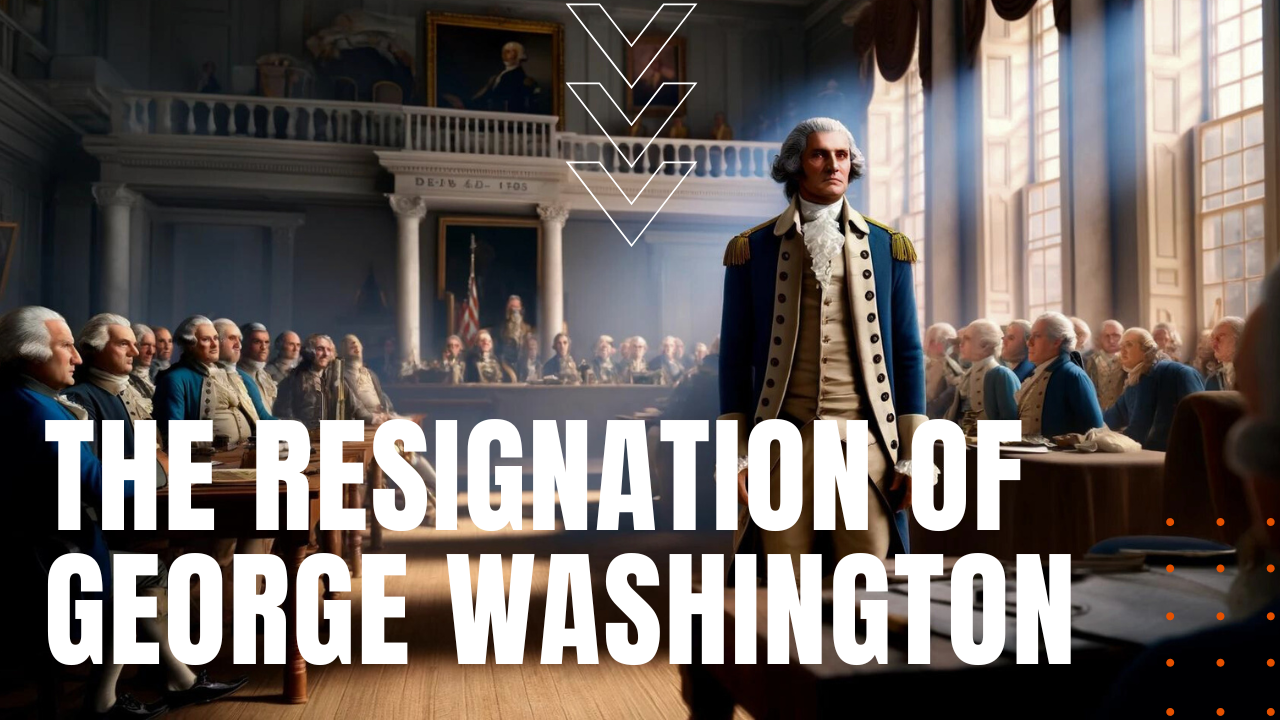Resignation of George Washington

In the summer of 1781, British General Charles Cornwallis marched an approximate 8,000-man army into the Virginia port city of Yorktown, expecting to meet British ships sent from New York to replenish his badly reduced stores of food and ammunition. By early October, however, with no British ships on the horizon, General George Washington and French General Jean-Baptiste Rochambeau lay siege to Yorktown by surrounding the city with 17,000 French and American troops, while French Admiral Francois de Grasse patrolled the Chesapeake Bay and the mouth of the York River, intent on blocking any British attempts to flee.
Peace at Last
Three weeks later, on October 19th of that same year, Cornwallis agreed to Washington’s terms of surrender, as laid out in his Articles of Capitulation, effectively ending the Revolutionary War. Peace negotiations stalled for the next two years in Paris, due to Britain’s initial refusal to acknowledge American independence and sovereignty; a point which Americans John Adams, Ben Franklin and John Jay, refused to remove from the negotiating table. After the election of a new, more pro-American Parliament was seated in London, led by newly-elected British Prime Minister Lord Shelburne, who saw the chance to build a lucrative trade alliance with the new nation, minus the cost of civil and military oversight, the British signed the Treaty of Paris at the Hotel d’York on September 3rd, 1783, before its ratification by the Continental Congress on January 14, 1784, from their seat at the Maryland State House in Annapolis.
Formal Retirement
In-between the formalities of ending the war, on December 23rd, 1783, standing before the Continental Congress, George Washington resigned his commission as commander in chief of the Continental Army, expressing his desire to return to his beloved Mount Vernon as a private citizen, an event which historians consider a lasting testament to Washington’s republican values by relinquishing his power back to the federal government. “I have now the honor of offering my sincere Congratulations to Congress,” he addressed the body of legislators, “and of presenting myself before them to surrender into their hands the trust committed to me, and to claim the indulgence of retiring from the Service of my Country.” Little did Washington know, that his service would continue as the nation’s first two-term president, making the resignation of George Washington, a turning point moment during the birth of a nation.
